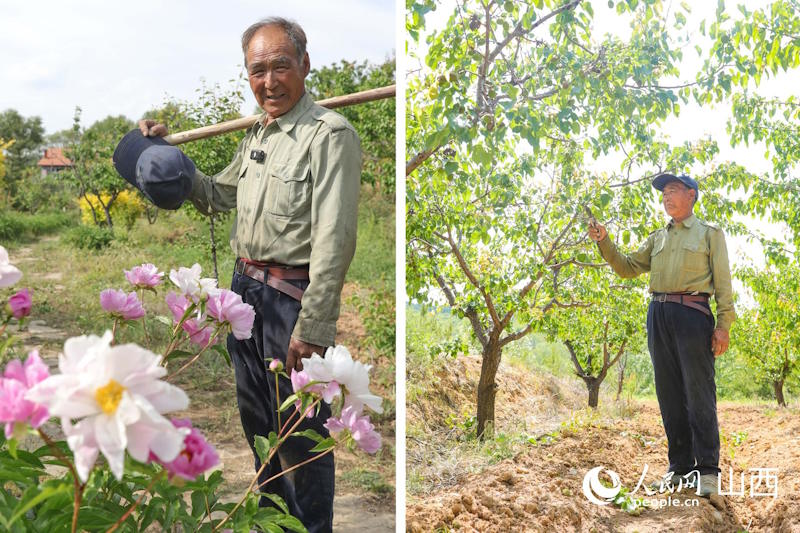How one man’s perseverance—and a community’s relentless effort—turned a barren desert valley in China into a thriving forest and economic hub.

In the height of summer, the Shipao Valley in Youyu County, Shuozhou City, Shanxi Province, is now covered in lush greenery. Yet not long ago, not a single tree grew here. Even grass struggled to survive.
This extraordinary transformation is largely thanks to one man: Wang Zhanfeng, now 74, who has spent his entire life battling desertification and planting trees.
The radical choice of Wang
Youyu lies in the wind corridor of the Mu Us Desert, once so fragile and battered by sandstorms that authorities considered evacuating the entire county. In the 1950s, the local government launched a massive reforestation campaign. At the time, tree cover was less than 0.3%. Today it has reached 57%.
In 1983, as new rules were introduced for managing small water basins, Wang made a decision that would change the course of his life. A wealthy man with a comfortable existence, he gave it all up. He poured his savings into roughly 250 acres (100 hectares) of barren land in Shipao Valley and committed to making it green again.
He was the first in the province to take on such a challenge. The reality, however, was harsher than he imagined: poor-quality seeds, exhausted soil, and a landscape hostile to growth. But Wang refused to quit. He built small dams and terraces to conserve water and stop erosion, experimented with new irrigation techniques, planted crops, and moved repeatedly, often living in makeshift shelters. He worked from dawn until late into the night.
His perseverance began to show results. In 1994, he was honored as a “Model Worker for Watershed Management in Shanxi.” Four decades later, he has helped transform over 770 square miles (2,000 square kilometers) of land into a green expanse.
What was once a monotonous plantation of poplars has become a thriving ecosystem. Wild pheasants, Siberian roe deer, and countless other species now live there. And Wang still dreams bigger. He hopes to plant blueberries and sea buckthorn so that the land will not only sustain nature but also create economic value for the community.
A valley turned into a mosaic of life
The story of Youyu is not just about one man. It is about a whole community that refused to surrender to the desert.
Back in the 1970s, under the leadership of Deng Xiaoping, environmental scientists described the area as “a desertified and uninhabitable wasteland.” Party leaders seriously debated whether to relocate the population.
Today, walking through Shipao Valley, it’s hard to believe those warnings. Green pastures, Mongolian pines, larches, orchards, soccer fields, and grazing lands have replaced the yellow dunes.
This transformation was born of grueling collective work. Families planted saplings on the mountain slopes, carrying water up by hand to keep them alive. Women hauled heavy buckets, while men dug holes and filled them with river silt to trap moisture. It was exhausting, backbreaking labor—repeated for decades until the trees finally took root.
Thanks to this commitment, the reforestation now spans more than 240,000 acres (97,000 hectares).

@People’s Daily Online/Wang Fan
Ecological and economic rebirth
The rebirth of the land also meant the rebirth of the economy. Today, Youyu is one of China’s leading horse-breeding centers, while wool, fruit, tourism, and other activities generate tens of millions of dollars in revenue each year.
The United Nations has recognized Youyu’s reforestation program as one of the world’s best examples of combating desertification and ecological restoration. Last October, it won the New Sustainable Cities and Human Settlements Award in New York.
The story of Wang Zhanfeng and Youyu is a reminder that nature can recover—if we give it care, time, and determination. No matter how threatening the desert may appear, with persistence, intelligence, and collective effort, life can return where it once seemed impossible.
